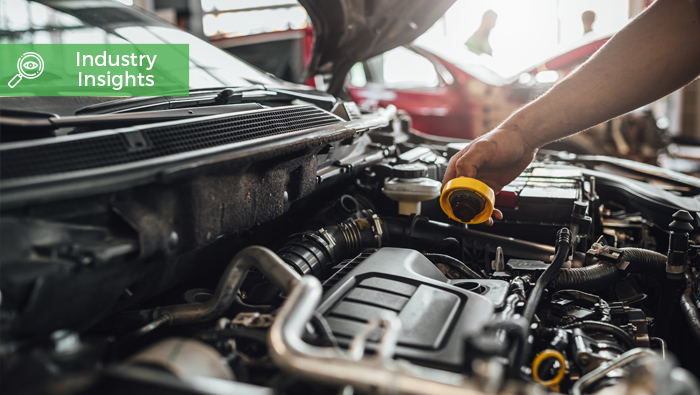It is beyond discussion that mankind needs to make changes to preserve the Earth as a long-term habitat – and of course, the automotive industry plays an important role in this challenge. What can and should be discussed, though, are the means to do that.

Article from the experts of Automotive Practice Group of InterSearch Worldwide, a leading organization of Global Executive Search Firms Woldwide.
Many countries around the world have chosen the e-vehicle as a suitable alternative (or successor, respectively) to the combustion engine and have consequently developed incentives in the form of subsidies or tax breaks to promote those. The individual goals, however, differ greatly: While the Chinese government aims for 20% of all vehicle sales to be electric by 2025, Canada pursues 60% in 2030 and 100% in 2035. The latter is in line with the EU’s plan to ban the sale of new cars with combustion engines from 2023. However, the wisdom of this measure is hotly debated among the EU countries, as alternatives like efuels or hydrogen are not considered at all. Limiting the focus solely to EVs entails risks. What should not be forgotten: Big OEMs produce for the whole world, so they can hardly restrain themselves to just one technology and thus lose relevant market shares.
E-cars require an infrastructure that can easily be set up in some places, but hardly in others. There are tremendous differences between not only individual countries, but even regions within one country – e.g., think of rural versus urban areas. In country terms, the gap becomes even more obvious.
“Apart from China, the U.S. and Europe, progress is slow in other regions of the world due to government policies, lack of public charging infrastructure and high prices for e-vehicles”, says Malena Juarez InterSearch Mexico.
While Mexico has a total of 290 charging stations, there are 115.000+ stations in the Netherlands.
“Even in the EU, though, there’s still a lot of work to do since the current ratio is 13 cars versus 1 charging point, which is far from the required 9 to 1 ratio”, as Francesco Righi InterSearch Italy knows.
Acceptance, too, is a big issue: Due to the much lower range of an e-car, drivers vastly need to adapt to new schedules – which is highly problematic in some professional areas such as field sales.
As Igor Svatos of InterSearch Czech states:
“Their clients demand time flexibility – but limited range of the cars and the network of charging station make it difficult for EV users to meet the tough time schedules.”
Hybrids are an obvious solution as they use the infrastructure available at each individual spot, may it be fuel or electricity. In terms of acceptance, price is of course the most important argument: Stellantis CEO Carlos Tavarez recently stated that the main challenge for car manufacturers today is to sell electric cars that are more affordable for the average consumer. If e-cars are not cheaper or at least as expensive as combustion cars, consumers will hesitate to switch. A price reduction can be achieved through the aforementioned incentives, but in the long run, only mass production can be the solution. This requires security in the supply chain – which is why European companies are starting to build their own battery production to meet demand without depending on China, which is still very dominant in this market. In the U.S., the action is going even further, with a new law on the way that will require batteries to be manufactured in one of the USMCA contracting states: USA, Canada, or Mexico, with the raw materials having to come from one of these countries or another trade ally of the USA.
Binita Ghosh of InterSearch India reminds us:
“One country, many do not yet have on their radar regarding resources is India, that could become a net exporter of lithium to global markets in bulk.”
In principle, e-cars only make sense if the electricity is generated from renewable energies, otherwise, one evil just replaces the other. So far, only very few countries in the world can provide that prerequisite. And in this context, affordability on the road must be considered as well: fluctuating electricity prices aren’t the best basis to further establish the desired green technology. Homeowners of course can erect their own solar charging station – but those are a negligible minority.
And why does nobody talk about climate problems? Not the general ones, but those in relation to battery runtime. Winter temperatures still are a major problem and considerably reduce the range of e-vehicles. This leads us to one of the most essential technical aspects of the discussion: the batteries. There is still a lot of headroom in the development, just to name a few challenges: availability of resources, recycling, duration…
Widukind Baier, InterSearch Personalberatung Germany and Global Leader of the Automotive Practice Group:
“As of today, we are in an advanced, but certainly not in the final stage of battery-driven vehicles. Radical regulations, such as those planned in the EU, should therefore be pursued with caution only. We shouldn’t lose sight of the alternatives.”
Contact the InterSearch Automotive Industry subject matter experts
| Global Practice Leader | Americas | Asia Pacific | Central Eastern Europe | North West Europe & MEA |
|
|
|
|
|
|
About InterSearch
InterSearch Worldwide is a global organization of executive search firms consistently ranked amongst the largest retained executive search practices in the world. InterSearch is currently operating with over 90 offices in more than 50 countries. Established in 1989, InterSearch prides itself on carefully selecting the best executive search firms to partner as a member of a global entity with high integrity, transparency, and depth of experience. InterSearch prides itself on having a global reach but local impact.
For additional information, please visit www.intersearch.org.
Media contact: This email address is being protected from spambots. You need JavaScript enabled to view it.







